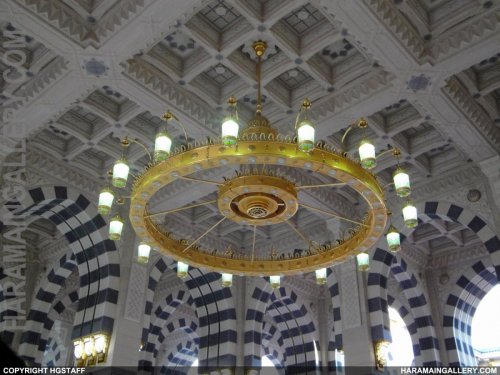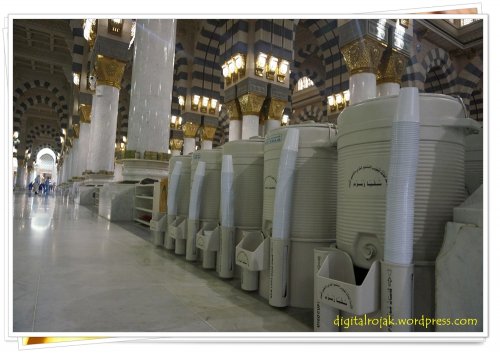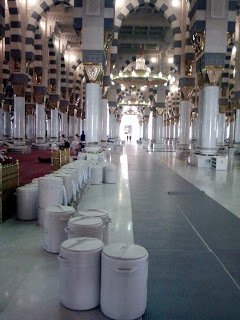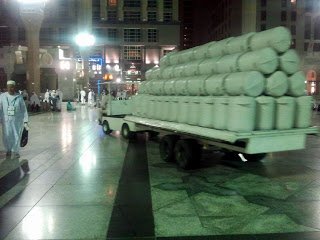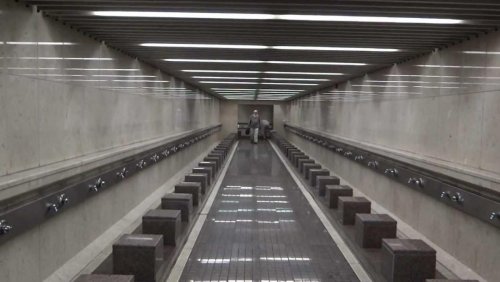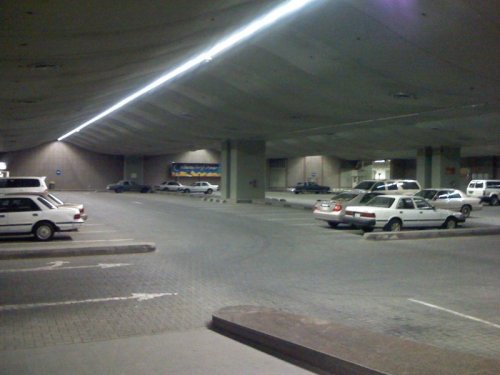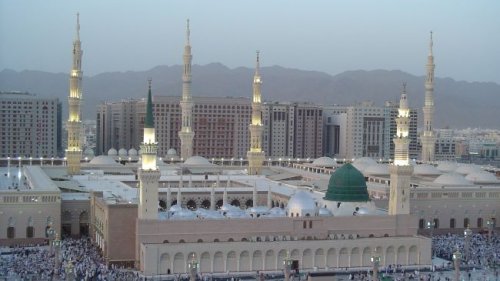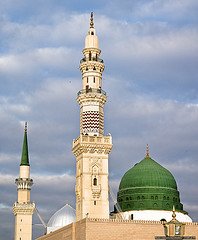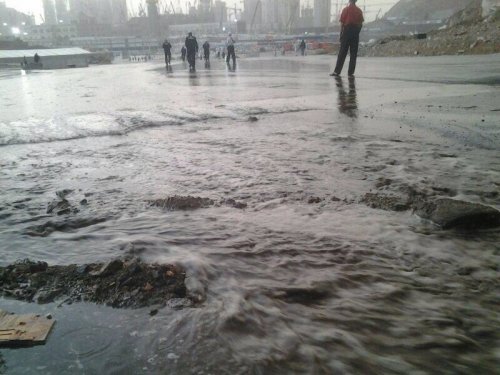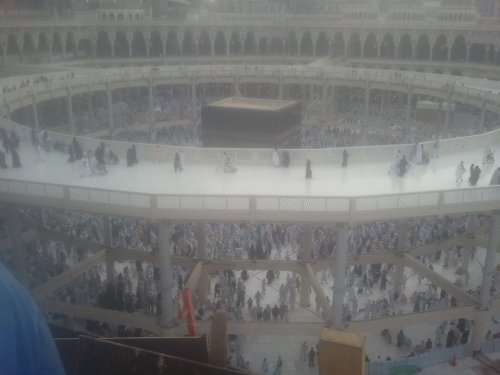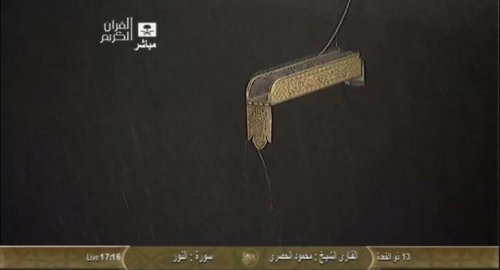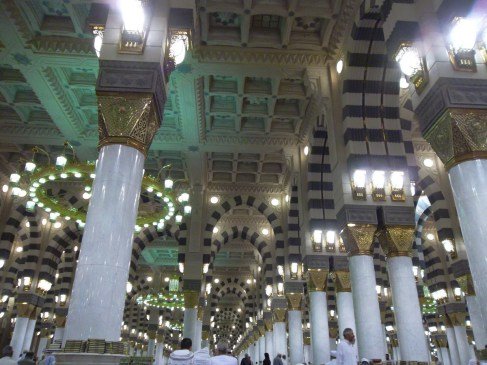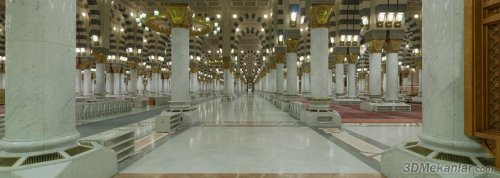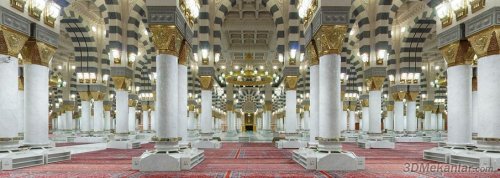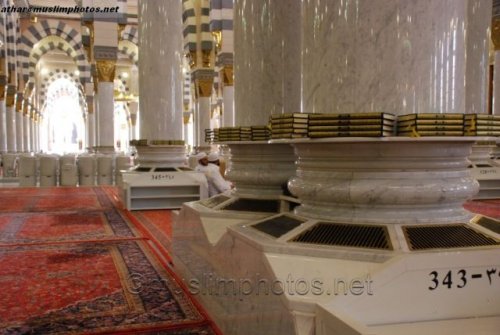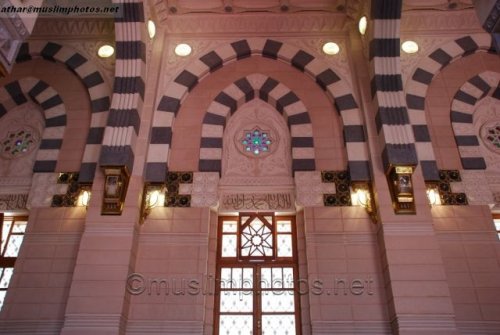-
Posts
8,434 -
Joined
-
Days Won
771
Content Type
Profiles
Forums
Events
Everything posted by ummtaalib
-
The First Ten Days of Zul-Hijjah By Shaykh Muhammad Saleem Dhorat hafizahullah Significance of the First Ten Days of Zul Hijjah 1. Allah has taken oath of ten nights in Soorah Al-Fajr. According to the majority of the commentators of Qur'ãn, the nights are those of the (first) ten days of Zul Hijjah. 2. Abdullah Ibne 'Abbãs radiyallahu anhu related that the Prophet sallalahu alayhi wasallam said, "Good deeds performed on other days are not superior to those performed on these (first ten days of Zul Hijjah)." The Companions radiyallahu anhum inquired, "Not even Jihãd?" He replied, "Not even jihãd, except for that person who goes out putting himself and his wealth in danger and does not return with anything." (Bukhãri) 3. Abdullah Ibne 'Abbãs radiyallahu anhu narrated that Rasoolullah sallalahu alayhi wasallam said, "On no other days are good deeds more liked by Allah than on these ten days (i.e. The first ten days of Zul Hijjah)." The Sahãbah radiyallahu anhum asked, " O Rasoolullah ! Not even Jihãd in the Way of Allah?" Rasoolullah sallalahu alayhi wasallam replied, "Not even Jihãd in the Way of Allah, except for that person who goes out with his life and wealth and does not return with anything." (Aboo Dãwood, Tirmizi, Ibne Mãjah) 4. Aboo Hurayrah radiyallahu anhu related that Rasoolullah sallalahu alayhi wasallam said, "On no days is the worship of Allah desired more than in the (first) ten days of Zul Hijjah. The fast of each of these days is equal to the fast of a whole year, and the worship of each of these nights is equal to the worship of Laylatul Qadr." (Tirmizi, Ibne Mãjah) 5. The mother of the believers, Hafsah radiyallahu anhaa reports that Rasoolullah sallalahu alayhi wasallam used to fast the (first) nine days of Zul Hijjah. (Nasã'ee, Ahmad, Aboo Dãwood) 6. Abdullah Ibne 'Umar radiyallahu anhu related that Rasoolullah sallalahu alayhi wasallam said, "No days are as weighty with Allah and so liked by Him for good deeds than the first ten days of Zul Hijjah. So on these days increasingly read Subhãnallah, Lã ilãha illallãh, Alhamdulillah and Allahu Akbar." (Musnad Ahmad) Virtues of the Day of Arafah (9th Zul Hijjah) 1. 'Ã'ishah radiyallahu anhaa reports that Rasoolullah sallalahu alayhi wasallam said, " There is no day in which Allah sets free more souls from the fire of hell than on the day of Arafah. And on that day Allah draws near to the earth and by way of exhibiting His Pride remarks to the angels, 'What is the desire of these (servants of mine)?" (Muslim) 2. Talhah radiyallahu anhu reports that Rasoolullah sallalahu alayhi wasallam said, "Apart from the day of the Battle of Badr there is no day on which the Shaytãn is seen to be more humiliated, more rejected, more depressed and more infuriated, than on the day of Arafah, and indeed all this is only because of beholding the abundance of descending mercy (on the day) and Allah's forgiveness of the great sins of the servants." (Mishkãt) 3. Aboo Qatãdah Al-Ansãri radiyallahu anhu narrated that Rasoolullah sallalahu alayhi wasallam was asked about the fast on the day of Arafah. He said, "It compensates for the (minor) sins of the past and the coming year." (Muslim, Tirmizi, Ibne Mãjah) Night of 'Eedul Adh'hã The nights of both 'Eed are described in the Hadeeth as amongst the great and sacred nights in the Muslim calendar. To remain awake on the nights of 'Eed and perform 'ibãdah is a source of great virtue and reward. 1. Aboo Umarah radiyallahu anhu related that 'Ã'ishah radiyallahu anhaa reports that Rasoolullah sallalahu alayhi wasallam said, "Whosoever stays awake and performs 'ibãdah (worship) on the nights of the two 'Eed, with hope for abundant reward (from Allah), his heart will not die on the day (i.e. Qiyãmah) when all hearts will be dead." (Targheeb) 2. Mu'ãz Ibne Jabal radiyallahu anhu relates that Rasoolullah sallalahu alayhi wasallam said, "Jannat is wãjib (incumbent) for those who stay awake with the intention of making 'ibãdah on the following nights: 8th, 9th and 10th of Zul Hijjah, the night of 'Eedul Fitr and the night of the 15th of Sha'bãn." (Targheeb) Virtues of Qurbãni Rasoolullah sallalahu alayhi wasallam said, "There is nothing dearer to Allah during the days of Qurbãni than the sacrificing of animals. The sacrificed animal shall come on the Day of Judgement with its horns, hair, and hooves (to be weighed). The sacrifice is accepted by Allah before the blood reaches the ground. Therefore sacrifice with an open and happy heart." (Tirmizi, Ibne Mãjah) Takbirãt of Tashreeq The Takbirãt of Tashreeq are: Allahu Akbar, Allahu Akbar, Lã ilãha illallãhu wallahu Akbar, Allahu Akbar, Walil lahil hamd. "Allah is the Greatest, Allah is the Greatest. There is no deity besides Allah and Allah is the Greatest. Allah is the Greatest and all praises are for Allah only." It is wãjib for every adult Muslim to recite these Takbirãt of Tashreeq audibly once after every fardh salaah which is performed with jamã'at (congregation) from the Fajr of 9th Zul Hijjah to the 'Asr of 13th Zul Hijjah (i.e. total of 23 salãh). Mas'alah: It is not wãjib for women and shar'ee travellers. But, if they are performing salãh behind an imãm upon whom it is wãjib, then it will become wãjib upon them too. However it is mustahab for them to recite in any case. Mas'alah: Women should not say it loudly but softly. Mas'alah: Takbeer should be recited immediately after concluding the fardh prayer. http://idauk.org/publications/leaflet39.html
-
Sound System, CCTV Monitoring & Lighting in Masjid Nabawi There is a sound system of 206 amplifiers, each 600 watt, with 3,500 speakers all over the Masjid. There are 534 cameras in the Masjid. There are 11 electrical sub stations in the basement. There are 38,000 lighting fixtures, 68 gold plated chandeliers each 6.8 meters in diameter as well as 111 small entrance chandeliers. In addition, the new extension has 9,128 circular lighting fixtures made of brass units and glass, inscribed with the names of Almighty Allah. "Women's Guide in Madinah Munawwarah" Mufti Muhammad Faruq Click on picture to full screen. Note that this particular circular light has "Laa-i-laaha illallaah Muhammadur Rasoolullaah" inscribed on it and not the names of Almighty Allah as is mentioned above. Therefore maybe Mufti sahib is referring to another circular light.
-
Zamzam Water Supply at Masjid Nabawi Zamzam water is transported from Makkah and supplied throughout Masjid Nabawi. The water containers are continuously filled manually by workers. One often sees truckloads of containers being delivered in the courtyard or empty barrels piled up, ready to be picked up. At one point in the courtyard, people que up with containers for Zamzam water.
-
The Basement The height of the basement in four metres. Secondary services are accommodated within the basement. Connected to the basement is an underground tunnel which penetrates the streets of the city, leading to the special services which contains the electrical and mechanical machinery and hardware plant, supplying the cool and chilled water for air conditioning to the Masjid complex. "Women's Guide in Madinah Munawwarah" Mufti Muhammad Faruq Wudhu Area With a row of toilets next to it Car Park Past the Wudhu area is the car park. The following short video shows the car park and Toilet/Wudhu areas.Escalators lead up to the next floor with a similar layout. The third escalator leads to the courtyard of Masjid Nabawi. InshaAllah I hope this information will come in useful to someone going to Madinatul Munawwarah for the first time. Video
-
The following paragraphs discredit the erroneous claim of some individuals: that only the narrations of Sahih Al-Bukhari and Sahih Muslim are authentic. This rebuttal is summarized in five points. An Outdated Misconception Firstly, in the fourth century of Islam, there existed a deviated sect which – like some individuals today- claimed that besides the ahadith of Sahihain, all other narrations are unacceptable. This false accusation was the reason for which Imam Abu Abdillah Muhammad ibn Abdillah Al-Hakim Al-Naisaburi (rahimahullah) compiled his famous work entitled: “Al-Mustadrak ‘alas Sahihain’’, in which he endeavored to compile those ahadith that fulfill the criteria of Sahih Al-Bukhari and Sahih Muslim but were not included therein. In his introduction, Imam Al-Hakim (rahimahullah) says: “Neither of them (i.e. Imam Bukhari (rahimahullah) or Imam Muslim (rahimahullah) have stated that there exists no other authentic narrations besides what they have chosen”. [Al Mustadrak, vol.1 pg.2] When commenting on the criteria laid down by Imam Bukhari and Imam Muslim (rahimahumallah), the scholars generally rely upon their own scrutiny of the respective books (i.e. Sahih Al-Bukhari and Sahih Muslim). The reason for this is that very little has being explained by the authors themselves. For example, Imam Al- Bukhari (rahimahullah) has not written an introduction to his book, wherein he would have mentioned his criterion for accepting ahadith as sahih, or as to what would be his methodology in his book. This naturally leads to difference of opinion among the scholars. However, there can be no difference of opinion when “the man speaks for himself”, as is the case in the topic under discussion. Imam Al-Bukhari (rahimahullah) said: “I have memorized one hundred thousand authentic ahadith.” [Tazkiratul Huffadh – vol.2 pg.556] Interestingly, he only included nine thousand and eighty two of them (including repetitions) in his Al-Sahih! (Refer: Hadyus Saari, pg.653) Imam Al-Isma’ili (rahimahullah) has quoted Imam Al-Bukhari (rahimahullah) as saying: ‘’I have only cited sahih (authentic) ahadith in this book (i.e. Sahih Al-Bukhari) However, the amount of sahih ahadeeth that I omitted there from is much more.’’ [Hadyus Saari pg.9] Imam Ibrahim ibn Ma’qal Al-Nasafi (rahimahullah) reports that Imam Bukhari (rahimahullah) said: “I have only quoted authentic ahadith in my book, and I excluded many other authentic narrations for the fear of monotony.” [ibid pg.9; Tarikh Dimashq vol.55 pg.54 Imam Abu Bakr al Hazimi (rahimahullah) states, ‘Imam Al-Bukhari (rahimahullah) never intended to encompass every authentic narration.’ [shurutul A-immah] Imam Muslim (rahimahullah) has made a similar statement in his book Sahih Muslim, “Chapter on Tashahhud”: “I haven’t quoted every single authentic narration in this book.“ i.e, there are many authentic narrations that are not included therein. Imam Muslim (rahimahullah) is also reported to have said: “I haven’t ever claimed that those narrations which are excluded from my Sahih are weak. My only claim is that the ahadith contained in my book are authentic.” [Tarikh Baghdad and Al-Imam Ibn Majah wa kitabu Al-Sunan, pg.107] These quotations clearly explain the reality; that there exists many authentic narrations outside of the Sahihain. The many types of Sahih Hadith Secondly, Hafiz Ibn Salah (rahimahullah) and others have classified the Sahih ahadith in to seven categories: 1) Those ahadith that appear in both, Sahih al Bukhari and Sahih Muslim. (Muttafaq ‘Alaih) 2) Those ahadith that appear only in Sahih al Bukhari. 3) Those that appear only in Sahih Muslim. 4) Those that match the criteria of both, Sahih al Bukhari and Sahih Muslim, but are not found therein. 5) Those that match the criteria of Sahih al Bukhari only and are not found therein. 6) Those that match the criteria of Sahih Muslim only and are not found therein. 7) Those that do not fit the description of any one of the above, but were classified authentic by some reliable Muhaddithun. [Muqaddimah ibn Salah pg.27; Tadribur Rawi pg.73 and Sharh Nukhbah pg.64] In light of the above, the last four types of ahadith do not appear in the Sahihain. Despite that, they are still considered as authentic. Added to this is the fact that Imam Al-Hakim (rahimahullah) has cited ten types of Sahih ahadith, many of which are not included in the Sahihain. [Tadribur Rawi pgs.85-86] More Books that contain only Sahih Hadith Thirdly, many Muhaddithun have compiled books which they ensured contained only authentic narrations. Undoubtedly many of their narrations are not found in the Sahihain. Some of these compilations are: a) Al-Muwatta of Imam Malik (rahimahullah) b) Sahih ibn Khuzaimah c) Sahih ibn Hibban d) Al Mukhtarah of Imam Diyaudeen al Maqdisi (rahimahullah) and others. The General Practice of the Scholars Fourthly, the practice of all the Muhaddithun throughout time also confirms the prevalence of authentic ahadith outside of the Sahihain. In this regard, countless Muhaddithun have classified various ahadith (that do not appear in Sahihain) as Sahih. Books such as the following clearly substantiate this: a) Al-Targheeb wa Tarheeb of Hafidh Al-Mundhiri (rahimahullah) b) Riyadu Saliheen of Imam Al-Nawawi (rahimahullah) c) Majma’uz Zawaid of ‘Allamah Al-Haithami (rahimahullah) d) Nasbur Rayah of ‘Allamah Al-Zaila’ee (rahimahullah) e) Fathul Bari of Hafidh Ibn Hajar Al-’Asqalani (rahimahullah) Imam Bukhari Himself Fifth and Lastly, there are several ahadith that are not in the sahihain which Imam Bukhari (rahimahullah) was asked to comment on. Many of them have been classified as sahih by Imam Bukhari (rahimahullah) himself! (Examples can be found in Al-‘Ilalul Kabeer of Imam Tirmidhi (rahimahullah) Conclusion These five points points are sufficient to prove the fallacy of the claim that: there exists no Sahih hadith outside of the Sahihain (Sahih al Bukhari and Sahih Muslim). Therefore, if any particular madhab (school of fiqh) substantiates its viewpoint with a narration outside of the Sahihain, there should be no objection as long as the narration is suited for that purpose. One who demands otherwise is quite far off from reality, since the Imams of the four famous schools of fiqh actually lived before the existence of the Sahihain! Note: The purpose of this article is not to disparage these two most authentic books of hadith. The Sahihain will always enjoy the rank of being “the most authentic books that were ever authored by man”. The motive is just to clarify a reality that seemed clouded to many contemporaries. May Allah Ta’ala guide us all. al-miftah.com Taken from here
-
Aside from reciting Surah al Waaqiya every day after maghrib, recite this dua abundantly after every salah : Mufti abuhajira Here
-
Hayaat al-Muslimeen by Maulana Ashraf Ali Thanvi (rahmatullahi alayh) Rasulullah ( saws ) said: "Verily, Allah will send for this Ummah at the beginning of every century a person who will renew (reform and renovate) for it the Deen. " Hadhrat Hakimul Ummat Maulana Ashraf Ali Thanvi (rahmatullahi alayh) was one such Mujaddid (Reformer) as is mentioned in the hadith of Rasulullah (saws ). The condition of the Ummah at all levels and in all spheres of life is dismal and deplorable. The Ummah is grounded in the quagmire of decadence. It's state of dishonourable existence is indeed heart-rending to those who understand the value of Islam and the true position of the followers of Islam. The way of life of the Ummah in present times and the Islam handed down by Muhammadur Rasulullah ( saws ) fourteen centuries ago are entities widely divergent and pole apart. There is extremely little affinity between the present Ummah and the Islam of the Sahaabah of Rasulullah ( saws ). Spiritually, morally, culturally, socially and politically, the Muslim Nation has fallen to the lowest ebb. The Muslim Nation is bankrupt in all spheres of its life in relation to Islam. The pitiable condition of the Nation of Islam besides its stagnation in the morass of corruption and degeneration in which it flounders, is its steady sinking into greater destruction. The Ummah is smitten with some incapacitating disease which had destroyed its moral and spiritual fibre, which had sapped its lifeblood and which has made Muslims the slaves of the kuffaar. The disease has brought the Ummah crashing from its position of grandeur and glory which once was its capital. The former grandeur of the Ummah was raised on the foundations of the highest kind of spirituality and morality. This spirituality and morality which constituted the springboard from which the Ummah of Islam took off in its flight of glory to attain the loftiest pedestals and pinnacles of grandeur and power, was the Rope of Allah -- that Hablullaah stated in the following aayat of the Qur'aan Shareef: "And hold on firmly all of you onto the Rope of Allah and do not split up (among yourselves). " Since the Ummah, in the truest sense of the command, in its early stages gripped this Hablullaah with might and power, it took hold of the powerful and unbreakable Divine Bond stated in the following aayat "Verify, they grabbed hold of a powerful handle; there is no break for it. " But, alas! The disease has ruined the Ummah. The Ummah is lying sprawled and prostrate, not in Sujood, but on it's Face at the feet of the kuffaar to be buffeted and manipulated in the conspiracy to fulfil the desires of the kuffaar. No longer is the Ummah holding on to the Rope of Allah. In Hayaatul Muslimeen or the Life of the Muslims, Hadhrat Hakimul Ummat diagnosis the disease of the Ummah and provides the prescription and the remedy for the sure cure of the Ummah. The prescription is the result of the diagnosis of one who has been sent by Allah Ta'ala for this purpose. The remedy offered is not a personal concept, not some new-fangled product of the human mind gone astray. It is the remedy given by Rasulullah (saws). It is then this divine prescription which the great Mujaddid offers. Since the disease has gripped and blinded the Ummah at all levels, this prescription offered in Hayaatul Muslimeen is for the entire Ummah. It is in fact the true and only panacea for the ills of the Ummah. It is the one and only alchemy of happiness and success for this Ummah which although following the norms and cultures of the kuffaar, still positively asserts its allegiance to Allah Azza Wa Jal. Since Hayaatul Muslimeen is written for all Muslims, Hadhrat Hakimul Ummah had endeavoured to keep it as simple as possible so that the Muslim masses may easily comprehend. Simplicity is the thread which runs throughout the book. Infact, the greater portion of the book consists of Qur'aan and Hadith narrations, for it is the Qur'aan and Hadith which were the foundations on which the superstructure of Islam and the Ummah's glory were erected by the Sahaabah ( ra ). The remedy offered by Mujaddid Hadhrat Hakimul Ummat (rahmatullahi alayh) is simple, divine, the one and only cure, the certain cure for the Ummah if only the Ummah can rise to the occasion and accept the remedy! MUJLISUL ULAMA OF SOUTH AFRICA P. O. Box 3393, Port Elizabeth, 6056. SOUTH AFRICA Read Online
-
Dua is accepted by Allah 'Ta' ala readily at the following places: (1) Inside the Baitullah Shareef. (2) Near to Hajr-e-Aswad. (3) Under Meezaab-e-Rahmat. (4) Near to Rukn-e-Yamaani. (5) Near to Maqaam-e-Ibraheem (6) Near to the Jamraat (7) Near to the Multazam (8) Near to the Well of Zam Zam (9) On Mount Safa (10) On Mount Marwah (11) Between Safa and Marwah (12) Between Rukn-e-Yamaani and Maqaame Ibraheem. (13) At Mina, especially in Musjid Khaif (14) At Arafaat (15) At Mash'arul Haraam' (16) Near to Mustajaar (17) In front of the entrance to the Ka'bah (18) In the Hateem (19) From wherever the Ka'bah is visible. My honorable Brethren! Take advantage of this golden opportunity and engage fervently in dua. These are sacred and auspicious places where duas are quickly heard and readily accepted. Once you depart from the Holy Ka'bah and these sacred places of Makkah Mukarramah, you may not again attain this wonderful opportunity of securing such great blessings. Kitaabul Hajj
- 1 reply
-
- 1
-

-
Minarets of Masjid Nabawi Umar bin Abdul Azeez ra was the first to construct Minarets for Masjid Nabawi. Four were constructed, on eon each corner of the Masjid. Minarets have been knocked down and added as different rulers presided over the centuries. There are in total ten minarets, six new and four old. The total height of the new minarets is 104 metres. As for the old minarets, the one next to the Green Dome is at a height of 44.53 metres and the one next to Bab-us-Salaam is 38.85 metres high. The two minarets built during the first Saudi extension have a hight of 72 metres. "Women's Guide in Madinah Munawwarah" Mufti Muhammad Faruq Future Mega Plans for Masjid Nabawi According to information online this is what Masjid Nabawi could look like in the future... Look at the towering Minarets!
-
Assalamu alaykum Question Why are there differently-worded narrations to one hadith? Answered by: Mufti Abdurrahman ibn Yusuf In the name of Allah Most Gracious Most Merciful There could be many reasons for the differences of expressions found in the narrations: One reason could be that the Prophet (upon him be peace) actually made the same point on various occasions using different words. Based on this, it is easy to understand that those who were present on one occasion would narrate differently from those who were present on another occasion. Another reason is that many times the narrators would relate the hadith in their own words and expressions, after having heard it from their teachers. The Companions would do this with the Prophet (upon him be peace) as well. Therefore, each person would narrate it in their own words according to their own vocabulary and style of expression, and the outcome would be different versions of the same narration, but all saying the same thing. There is somewhat difference opinion among the hadith scholars on the validity of narrating this way [i.e. without observing the same words as the teacher]. Some scholars state it is permissible but others are more strict in this regard. However, the view of the majority is that it is permissible with some conditions. Imam Nawawi writes in his Taqrib: “The opinion of the majority from the Predecessors and the Successors is that it is permissible to narrate by meaning (i.e. in ones own words) as long as one is convinced of being able to articulate the true purport.” Allama Suyuti in his commentary on the above text writes: “This was the common practice of the Companions and the Predecessors, and what highlights this is their narrating the same incident using different words.” (Tadrib al-rawi 3:742). He further writes: “Concerning this issue, a hadith has been relating by Ibn Manda in his Ma’rifat al-Sahaba and Tabarani in his al-Mu’jam al-Kabir on the authority of Abdullah ibn Sulayman ibn Aktam al-Laythi that he asked, “O Messenger of Allah, I hear a hadith from you but am not able to convey it in the same manner I hear it from you: one word is sometimes added or left out? The Messenger of Allah (upon him be peace) replied, ” If you do not make the unlawful lawful and the lawful unlawful and you are able to articulate the true purport then there is no problem [with that]. Imam Shafi’i has used the hadith on the Qur’an being revealed in seven letters as evidence of the permissibility of this practice. ‘Allama Suyuti then quotes from Waki’ that if maneuverability in (presenting]) the meaning was not possible then the people would be destroyed. (Tadrib al-Rawi 3:743-744). However, two things need to be kept in mind in this regard: One is that the above discussion was on the reasons for the difference wording and expressions found in the various narrations which have the same meaning and message. For the reasons of differences where the meaning is also different, a useful book on the subject is the “Difference of the Imams” by Shaykh Zakariya Khandelwi. This is one point. The other point that should be remembered is that the above statements were concerning people who had insight into this subject, Companions and hadith scholars. We must be careful when relating the words of the Messenger sallallahu alayhi wasallam and study with competent scholars of hadith and not just through the available English translations. And Allah knows best and in His control is all success. Wassalam Mufti Abdurrahman ibn Yusuf ZamZam Academy
-

Tragedy Of The Leicester Fire Deaths
ummtaalib replied to ummtaalib's topic in General Islamic Discussions
http://www.ciibroadcasting.com/2013/09/20/a-man-displays-firm-belief-in-god-after-fire-consumes-his-whole-family/ Dr. Muhammed Taufiq Al Sattar (the father) speaking to cii, south africa, about the incident. -
Idleness Hadhrat Moulana Ashraf Ali Thanwi (Rahmatullahi Alayhi) states: ”Safety lies in ensuring that you are not idle. Be involved in some activity, even if it is a worldly occupation provided that it is lawful. At all times, occupation is better than idleness. When a man (Or woman) is idle, Shaytaan settles on him (her). The best occupation is the Suhbat of an Arif (the special companionship with a lover of Allah). If one is without an occupation, then sleep is better than idleness” (Malfoodhaat, Vol.2, Pg.60, YMA) idealwoman.org
-
Rain in Makkah - 19 September 2013 (Pictures posted by Roukaya19 on muftisays.com) The Meezaabe Rahmat with water from the roof coming through
-
Part two Part Three
-
Qayloolah - Afternoon Siesta Have you heard the hadith "Take a nap, for the shayaateen do not take naps"? (Tabaraani) A short mid-day nap, which is called Qailoolah, this is a Sunnah of Nabi (S.A.W). It is not necessary to sleep, but rather to lie down during the daytime for some time to relax. Another Hadith mentions that Nabi (S.A.W) said, "Sleeping early in the day betrays ignorance, in the middle of the day is right, and at the end of the day is foolish."(Fath Al-Bari, p.73). Another Narration mentions, "We used to offer the Jumua Salah with Nabi (S.A.W) and then take the afternoon nap. (Al-Bukhari) Ishaaq ibn 'Abd-Allah said: "Taking a nap is one of the deeds of good people. It revitalizes the heart and helps one to pray qiyaam al-layl." "Relaxing once during the day is very conducive to total relaxation and sleep - once you crawl into bed for the night." [Kerner] Previous research has shown that short daytime naps improve vigilance and cognitive functions, and are beneficial for memory consolidation. In particular, a nap as short as 10 min can improve alertness and performance for 2.5-4 hours. A recent study assessed the health effects of napping in 23,681 healthy Greek adults for an average of about six years. After controlling for potential confounders, the researchers concluded that those who napped at least three times weekly for about half an hour had 37% lower coronary mortality than those who did not nap Insomnia is a medical problem affecting an increasing number of people nowadays, and is adding stress upon their stress. Practicing this Sunnah is a beneficial remedy to assist a person battling with insomnia. Resting for Qailulah is also helpful for staying up for Qiyam al-Layl (prayer in the night) Insha’Allah. Doctor Geolick Oston, who has written many books writes, "If it was in my control I would close schools, factories etc and make everyone rest at this time as if this is observed then we would have less ill patients and people would be saved from many illnesses." The psychologist suggests that sleeping at this time refreshes the body, strengthening it and it is saved from many physical and mental illnesses. Radio Islam
- 1 reply
-
- 1
-

-
MashaAllah great work. May Allah ta'ala make it a means of guidance for all the muslimaat of the Ummah!
- 1 reply
-
- 1
-

-
Maulana Saad on Eid ul Adha (Urdu) Brilliant speech! Listen Here Translation of the above lecture My dear friends and elders! That work which is not made into a worship will become a mere ritual. Really, this is the difference between worshiping and performing mere rituals. Rituals and festivals are for the non-Muslims and worship and sacrifice are for the Muslims. Continue Reading the Translation....
-
Performing Haj Without A Visa Hadith Concerning Deeds Which Gain The Reward of Performing Haj by Moulana Muhammad H Abasoomer Since Haj is among the most virtuous deeds in Islam, and not everyone can afford it (especially on a continuous basis) Allah Ta’ala has a"ached the reward of optional Haj to certain other deeds for the benefit of all. Now that the Hujjaj have began to depart, those who have been left behind can take consolation from the following authentic Hadith. Read more... al-miftah.com
-
Interior of Masjid Nabawi A Virtual Tour of Masjid Nabawi Let not the heart be diverted by the glittering décor! Let the heart be humbled in the presence of the Beloved of Allah! sallallaahu 'alayhi wasallam!
-
-
1. To sit and drink. (Sahih al-Bukhari Hadith6452 and Sahih Muslim Hadith5242, 5247). Zamzam water and left over water in the utensil used for Wudhu are excluded from this. 2. To drink with the right hand. (Sahih al-Bukhari Hadith5380; Sahih Muslim Hadith5233) 3. To take 3 sips (or more in odd numbers). (Sahih al-Bukhari Hadith5631; Sahih Muslim Hadith5255) 4. To say Bismillah before drinking. (Sahih al-Bukhari and al-Azkaar; Fath al-Baari vol.10 pg.117) 5. To say Alhamdulillah after drinking. (Ibnus-sunni Hadith472; Majmauz-zawaaid vol.5 pg.81; Sunan al-Tirmidhi Hadith1885; Fath al-Bari vol.10 pg.117 Hadith5631) 6. If there are several people who are going to share the drink, it should be given to the one on the right. (Sahih al-Bukhari Hadith5612; Sahih Muslim Hadith5257) 7. The one who is distributing the water (or food) should himself drink after everyone. (Sunan al-Tirmidhi Hadith1894) 8. To recite this Dua, after drinking water (not other drinkables) is also Sunnah Alhumdollilah hil lathee sakaana, uthban foraatun, bi rahmatihi, wa lam yaj alhu milhan ujaajan bi thunoobina All praise is due to Allah, Who of His Mercy has granted us sweet and pleasant water to drink and did not make it bitter and salty due to our Sins. (Roohul Ma’ani, pg.149, 27th Para ) (reviveasunnahblog)
-
Is it Sunnah to Drink water after having meals Question Is drinking water sunnat after food or one should not drink water after food? In the name of Allah, the Most Gracious, the Most Merciful. Assalamualaikum Warahmatullahi Wabarakatuhu Allamah Ibnul Qayyim رحمه الله has mentioned that the habit of Nabi Salallahu Alayhi Wasallam was that of not drinking immediately after eating as this is harmful to the digestion process.[1] However, if there is a pressing need to drink immediately after that, then only drink enough to quench the thirst. One may then drink after some time elapses. NOTE: This elapsed time is estimated to be 20-30 minutes. And Allah Ta’ala knows best Mufti Luqman Hansrot Fatwa Dept. efiqh
-
Sayyiduna Abu Hurayrah (Radiyallahu Anhu) reports that Rasulullah (Sallallahu Alaihi Wasallam) said: “When you finish eating, lick your fingers, for you do not know in which particle of food lies Barakah (blessings). In another Hadith narrated by Ibn Abbaas (Radiyallahu Anhu), Rasulullah (Sallallahu Alaihi Wasallam) said: “Barakah descends at the middle of the dish, so eat from its sides and do not eat from the middle” (So that Barakah remains throughout your meal) (Tirmizi)
-
The Sunnah Way of EatingThe Holy Prophet expressed dislike for over-eating and said that over-eating is ill luck and misfortune. In other words, a person who over eats will be followed by such faults and defects that he will have difficulty and hardship in every place and people will look at him in a bad way. The Holy Prophet used to eat with three fingers, and before wiping and cleaning his hand he used to lick his blessed fingers. Whenever food is very hot, it should be left covered for a while, so that the emission of steam finishes. In doing so, the Holy Prophet has said that this is a method in which barakah may be gained. Hazrat Anas has mentioned that, “I once saw the Holy Prophet sitting in a squatting posture and eating dates.” The posture mentioned means that when one keeps his calves straight and sits on his feet. Once in a gathering, the number of people eating increased, so the Holy Prophet sat with his blessed legs folded (as in Attahiyyat position in Salaah), the reason being that there is humility in sitting like this and there is consideration for other people who are also present because sitting in this manner creates more room for them. The people eating should not get up before the table cloth has been lifted. When one is eating with another person then he should not stop eating as long as the other person is eating, even though the stomach has become full, this is so that the other person does not feel ashamed. If one has to stop eating, then he should make an excuse One should not drink from a water container by putting his mouth on it. The same prohibition has been applied to placing the mouth on and drinking from a spouted jug, or a goblet meaning a long necked flask or a bottle etc. One should not breathe into a utensil or blow into it. One should also refrain from placing his mouth on a utensil that is cracked or broken. Many people have the habit of standing up and drinking, one should also refrain from this act. The Holy Prophet never found fault with food, if he liked it then he would eat it. If he did not prefer it, then he would just leave it without complaining. Hazrat Huzaifa has mentioned that the Holy Prophet prevented us from eating and drinking in gold and silver utensils. This order is for both men and women. May Allah Taa'la give us the ability to act upon these Sunnahs of Rasullullah . Ameen inter-islam

